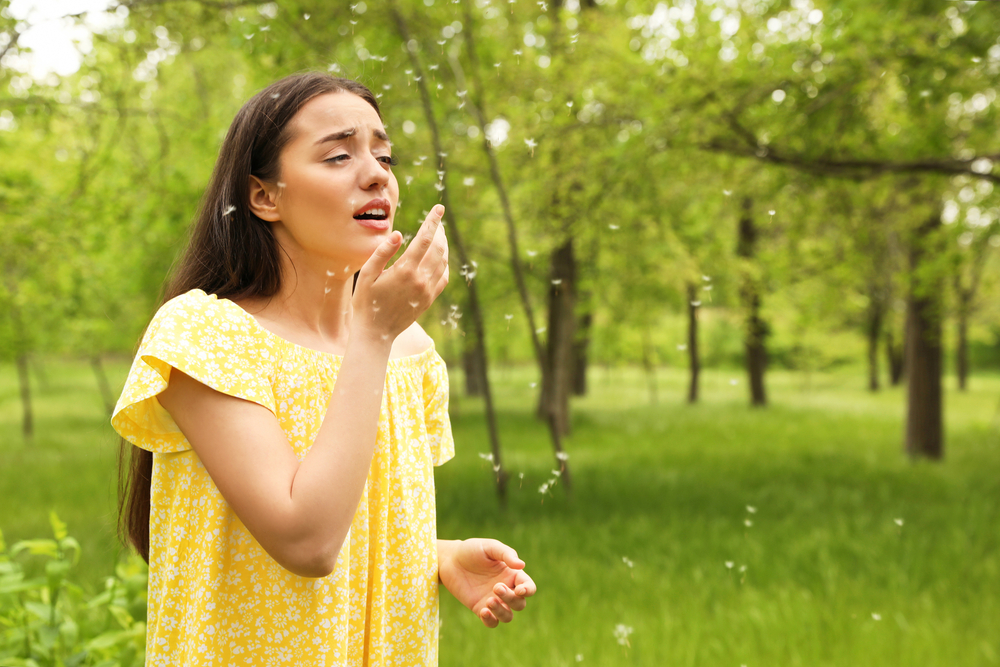How to Minimize Seasonal Allergens' Impact on Your Daily Life

If you spend any significant amount of time outdoors, you should wash up immediately after coming into your home. Remove your shoes at the door, then head upstairs and remove your clothing. Toss it immediately into your washing machine, and take a quick shower to rinse off any pollen you might have brought inside with you. Having pollen clinging to you is a great way to agitate those allergies. If they’re willing, you can ask your family members to follow this protocol as well to minimize the amount of pollen brought into the home.
For those with seasonal allergies, avoiding your allergens completely probably isn’t an option. Pollen is quite literally everywhere in the spring, and it can truly make some people miserable. What can you do to minimize the impact that allergies have on your daily life? Here are a few tips that might help.
Check Pollen Forecasts
During allergy season, you should be checking the weather report for more than just the weather. You should also be checking the air quality index and pollen forecasts for whatever your allergen is. On days with low air quality or a high pollen count, you should do your best to minimize outdoor activities. If you can stay indoors, you can avoid having a serious flare-up of allergy symptoms that could follow you around all day.
Wear a Mask Outdoors
If you must go outdoors for some reason, it’s a good idea to put on a mask to help filter out allergens from the air you breathe. Perhaps the only benefit of the recent COVID-19 pandemic is that high-quality masks are now much more available to those who need them. Homemade cloth masks are also acceptable for reducing your allergy symptoms, as allergen particles are much larger than viral particles.
Keep Your Home Clean
Unfortunately, even if you stay indoors, it’s impossible to keep 100% of the allergens outdoors. Any time you open a door or a window, pollen will get in. The same can be said for your dog coming in through the dog door or a family member returning from work; they’ll track at least some pollen in with them. Even your HVAC system can bring pollen into your home in some cases. If you have severe seasonal allergies, keeping your home clean is especially important during allergy season. Vacuum, dust, and wipe down surfaces on a regular basis (in some cases, you may want to do this daily) to help keep allergens out of your home.
Improve Indoor Air Quality
In addition to cleaning surfaces, you’ll also want to take any steps you can to clean the air in your home. Generally speaking, there are only two ways you can do this. The first is to invest in a high-quality filter for your HVAC system. We generally recommend a HEPA filter if you want to ensure that allergens are being removed effectively. The second option is to place air purifiers in the rooms that you use the most often. This will generally include your bedroom and the main living space of your home, but you may also want to place one in your office if you work from home during the day.
Wash Up When Coming In
Treat Your Symptoms
Obviously, all of the above methods are aimed at minimizing your exposure to allergens—and, hopefully, minimize your symptoms. But as we already stated, avoiding allergens completely is impossible, so it’s still important to treat your symptoms in a proactive way, including taking allergy medication before your symptoms flare up, not after. In addition to antihistamines, nasal sprays, and decongestants, you also might want speak to your allergist about other options to reduce your allergy symptoms. Many allergy sufferers can receive regular injections that can nearly eliminate their seasonal allergies.
Allergies and Respiratory Illnesses
If you suffer from any respiratory illness, it’s even more important that you take steps to reduce you allergy symptoms. For example, asthma sufferers who also have seasonal allergies should be vigilant about avoiding their allergens whenever possible and ensure they always have their inhaler or nebulizer with them. For those with sleep apnea, wash your bedding frequently and increase the frequency with which you wash your CPAP or BiPAP machine to ensure that allergens are not further irritating your condition while you sleep.
If you are in need of a nebulizer, inhaler, CPAP or BiPAP, or any cleaning products for your sleep apnea equipment, stop by Arlington Medical Supply to get help finding what you need.